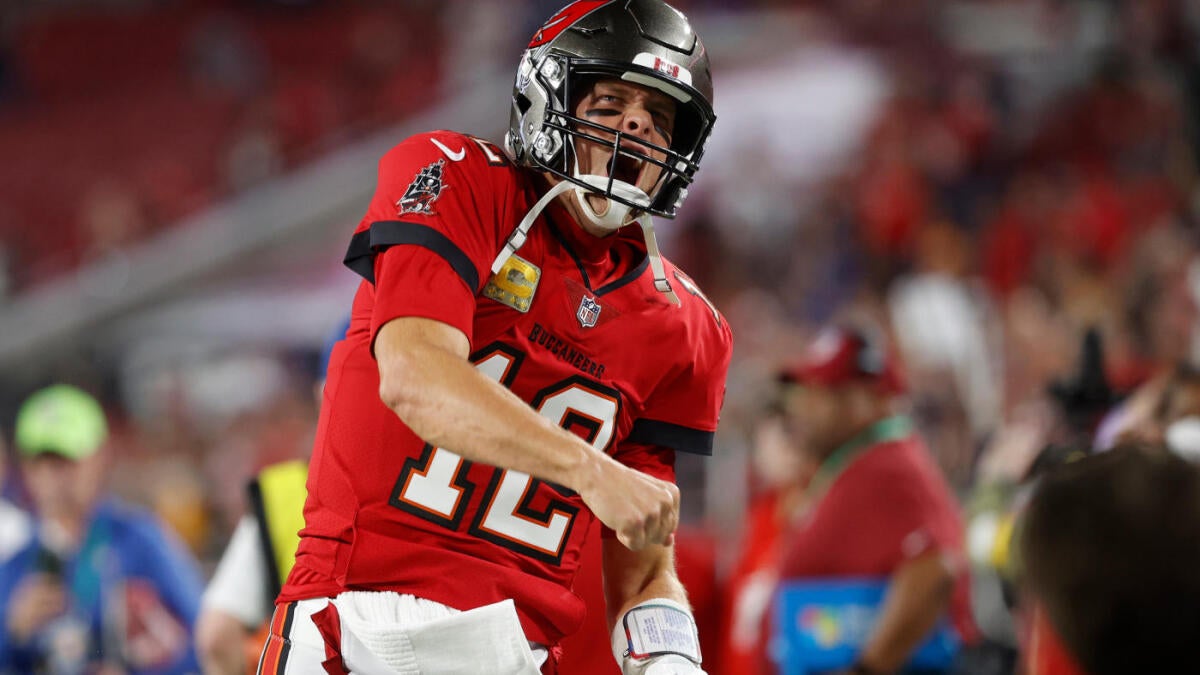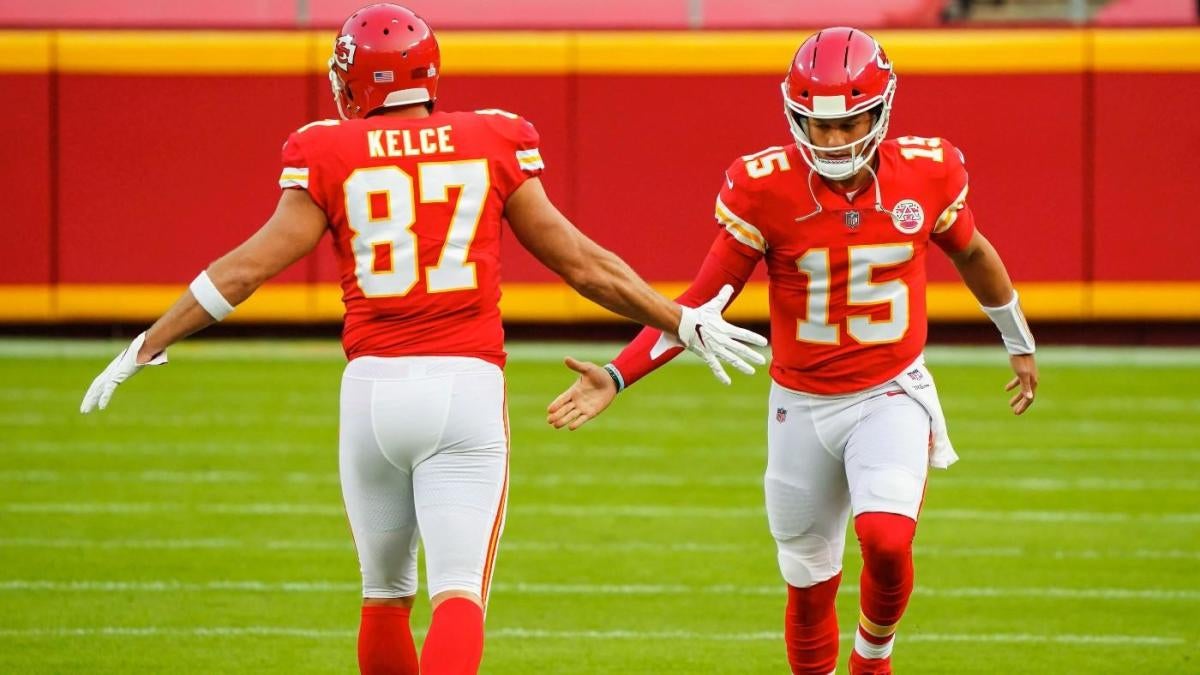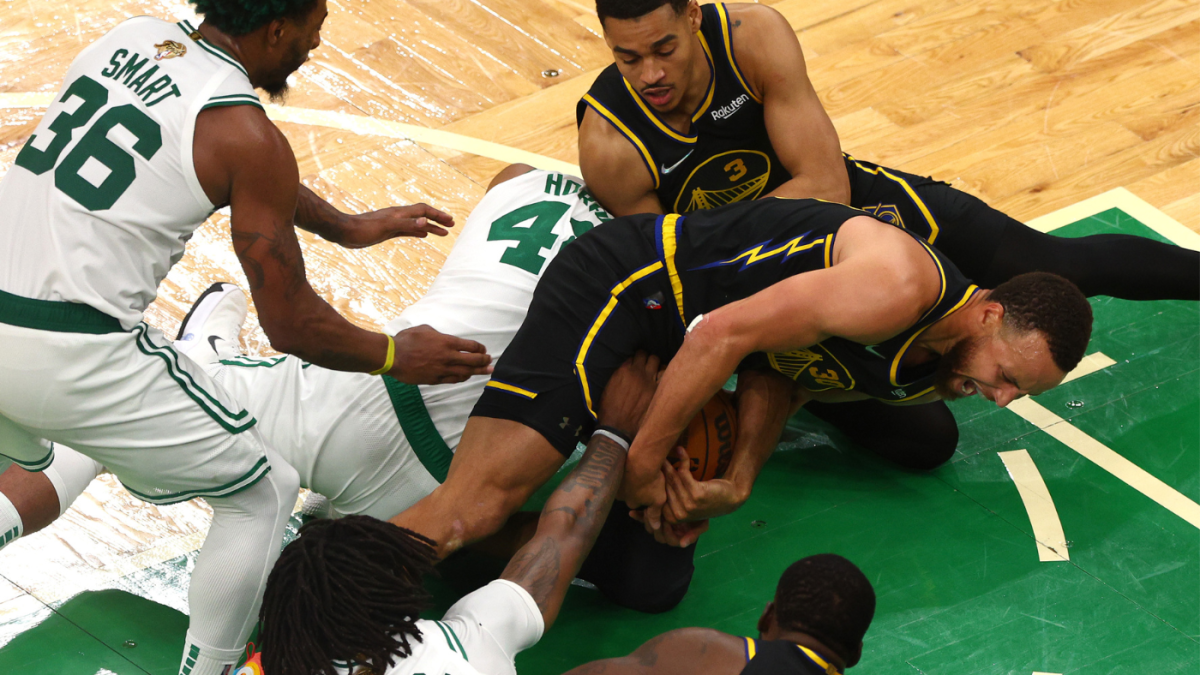Ranking all 16 NFC QBs: Tom Brady, Aaron Rodgers headline the list for 2022
Written by ABC Audio ALL RIGHTS RESERVED on June 9, 2022

In case you aren’t aware, the pool of quarterback talent across the NFL is quite deep. That’s most apparent inside the AFC, where four different signal-callers 26 years old or younger have either won MVP or advanced to the conference championship in the last four seasons. But the NFC isn’t too shabby, either, where some of the league’s oldest signal-callers also happen to be the best. So how would we rank all 16 of the NFC’s projected starting QBs entering 2022? We’re glad you asked.
Here’s our pecking order:
1. Tom Brady (Buccaneers)
It’s cliche, at this point, to discuss the winning aura that emanates from Brady, but as long as he’s in the NFL, few players — let alone QBs — merit more trust. Entering his age-45 season after a short-lived “retirement,” TB12 is coming off one of the best years of his career, which is saying something considering he’s got 22 seasons and seven Super Bowl wins under his belt. One of these days, his arm will surely regress, but it’s looked stronger than ever during his two MVP-level campaigns in Tampa. And no one outprepares Brady. The transition from Bruce Arians to Todd Bowles at head coach could come with hiccups, but it could also free Brady up to direct his own offense, which remains stacked with weapons. Another title run simply cannot be ruled out.
2. Aaron Rodgers (Packers)
Like Brady, A-Rod has only shifted into a higher gear with age, returning to high-volume stardom under Matt LaFleur as the NFL’s reigning repeat MVP. The clock may be ticking on his chance at a second ring, as Rodgers appears just as close, if not closer, to real retirement than Brady, and has not advanced to the Super Bowl since winning it in 2010. But even at 38, he brings a youthful pizzazz to the pocket, touting otherworldly touch and unshakeable confidence. Losing longtime No. 1 target Davante Adams could introduce hurdles we haven’t seen for a while, but he’s always been the type of QB to make his entire supporting cast better.
3. Matthew Stafford (Rams)
What deserves more weight, the 12 occasionally gaudy but unfruitful years he spent with the Lions, or the one MVP-caliber Super Bowl run he just enjoyed with the Rams? Stafford’s actual Super Bowl performance is a fitting template for the middle ground: imperfect, but good enough to win it all. His big arm gets him in more trouble than it should, as he’s prone to force untimely throws. And yet, given a stellar supporting cast, that rocket on his shoulder proves worthwhile. He and the Rams are a rock-solid match for each other, as long as Sean McVay remembers not to overburden his man. And he’s got all the toys to make noise again.
4. Dak Prescott (Cowboys)
Not so unlike Stafford, Prescott is at the upper echelon of the “really-good-but-not-necessarily-elite” QBs. Since a mercurial start to his career, going from Offensive Rookie of the Year to slumping sophomore, he’s settled in as one of the game’s best pure pocket passers, doing all the little things right and returning from a serious 2021 injury with some added zip on his passes. The issue lies with his big-game resume, or lack thereof; Prescott has not always excelled late in the year, and he’s 1-3 in four playoff games. Like Dallas, he’s got all the talent to make a run, but the results haven’t always been there when it counts.
5. Kyler Murray (Cardinals)
This is a crucial season for Murray, who’s entering a contract year as a curious combination of elite talent and unmet expectations. The good: he’s got both a rifle of an arm and a running back’s legs, starring as one of the NFL’s best dual threats when healthy. The bad: he’s finished all three of his seasons either hurt or in a slump for a team prone to late-year crumbles. Some of Murray’s woes can be pinned on his staff or older supporting cast, but there are documented internal concerns about his own accountability. It’s still safe to bet on his upside — he’s an athlete, and that counts for a lot — but it’s unclear what his ceiling is in Arizona.
6. Kirk Cousins (Vikings)
If you’re looking for a comparable AFC QB, consider the Raiders‘ Derek Carr. Both veterans are undeniably starting material who’ve proven they can be highly efficient while seeking the big play. Both have also struggled to win when it matters most. In 10 years, on multiple lucrative deals, Cousins has secured all of one playoff victory. That’s not all his fault, but it’s indicative that he’s a steady QB more than a special one. It’s possible the Vikings’ transition from old-school Mike Zimmer to young offensive mind Kevin O’Connell will further unlock Cousins’ ability, especially with elite weapons like Dalvin Cook and Justin Jefferson on his side.
7. Jalen Hurts (Eagles)
The issue with Hurts has never been dedication. Since even before he succeeded Carson Wentz as a rookie, the Alabama product has walked, talked and played like a veteran, steering teammates behind his lead. But in a league where you’re more likely to go the distance with an elite passer, can he be more than just a dangerous runner, his primary role during a 2021 playoff run? He’s taken some steps in that area, but 2022 should be the ultimate test. At least theoretically, he’s now got all the tools to emerge as a legit weapon, pairing his poise and high-motor legs with an offense now featuring A.J. Brown opposite DeVonta Smith out wide.
8. Carson Wentz (Commanders)
The pendulum has swung in both directions during Wentz’s polarizing career. First, the ex-Eagles star was probably overhyped coming off a 2017 MVP candidacy in which his playmaking powered Philadelphia’s title run. Now, the Colts‘ castoff is an afterthought in D.C., where the Commanders are betting he can finally stop playing hero ball and start coming through in the clutch. Wentz’s one-and-done run with Indianapolis is probably a fair representation of his standing: not nearly as bad as critics suggest, but also not nearly as impactful as his early career teased. Give him help, and you’ve got a serviceable QB.
9. Jameis Winston (Saints)
The Saints are restocking around Winston like he’s the entrenched franchise QB, trading up to draft receiver Chris Olave while returning stars like Alvin Kamara and Michael Thomas. But their behind-the-scenes actions, in recruiting Deshaun Watson and entertaining a Drew Brees comeback, probably say more about the reality: Winston is merely getting another trial run in 2022, after his relatively promising debut as Brees’ successor was cut short due to injury. The prototypical size and big arm are still there, but he’s struggled to stay healthy or avoid turnover streaks for long. Related: Andy Dalton is the new backup here.
10. Trey Lance (49ers)
These rankings obviously aren’t perfect; you can’t say the Commanders and Saints wouldn’t much rather have Lance as a long-term option under center. But how high can you rank a guy who’s made two career starts, and who may or may not have to emerge from Jimmy Garoppolo’s (injury-riddled) shadow yet again? All signs point to the NDSU product taking over in San Francisco, and talent-wise, he’s got all the tools — nice size, great athleticism, promising arm — to be a star for Kyle Shanahan. But he looked far more polished as a runner than a thrower in his limited rookie action, so there’s a lot of projection here.
11. Justin Fields (Bears)
He and Lance are both essentially projections. Fields, for example, had the benefit of logging 10 starts as a rookie in Chicago, but he’s still an unknown considering the shoddy supporting cast he had in 2021. Unfortunately, the new Bears regime hasn’t done him any favors on offense going into 2022, at least on paper. Like Lance, he’s got all the physical tools, specifically a strong arm and playmaking legs. But can he improve as a decision-maker, and truly develop as a face of the franchise, amid such an iffy lineup?
12. Jared Goff (Lions)
Detroit has inexplicably refused to add competition here, and barring a late-game trade for another veteran, is set to double down on the notion that Goff can be more than a placeholder. His supporting cast isn’t bad, with a solid line and speedier receiving corps now featuring Jameson Williams. But Goff has proven with both the Rams and Lions that, like most QBs, he’s only as good as his surroundings. He’s capable of some pretty precision passes, but he’s also been skittish in some big moments.
13. Daniel Jones (Giants)
It’s possible he’s got the best chance of vaulting up the list, simply by virtue of playing for Brian Daboll instead of the Joe Judge and Pat Shurmur regimes that came before. There’s certainly untapped potential in Jones’ game; the Duke product is athletic but has been trapped beside or behind poor help. Still, his penchant for following up a big play with a silly one is well-documented. He’s never been all that efficient. New York is already prepared to shop for a replacement if he doesn’t nail his final audition.
T-14. Marcus Mariota (Falcons), Geno Smith (Seahawks), Sam Darnold (Panthers)
Yep, you read that right. The bottom tier is so uninspiring that we’re lumping these last three “starters” together. No disrespect to Darnold, Mariota and Smith, who are all undoubtedly working hard to seize their QB1 opportunities. But there’s a reason these three teams aren’t expected to do much damage in 2022. Darnold at least offers the mobility and live arm of a former first-rounder, but without the requisite confidence or pocket presence. Smith was so-so replacing Russell Wilson in 2021, but his ceiling projects as little more than figurehead for a run-heavy Seahawks offense. And Mariota, while elusive with starting experience, has struggled to stay consistently healthy or successful through the air, and he’ll be working with a roster in total overhaul.
The post Ranking all 16 NFC QBs: Tom Brady, Aaron Rodgers headline the list for 2022 first appeared on CBS Sports.






